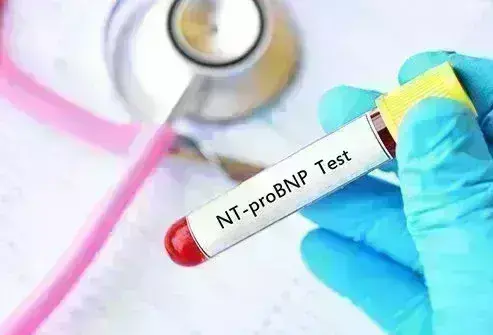- Home
- Medical news & Guidelines
- Anesthesiology
- Cardiology and CTVS
- Critical Care
- Dentistry
- Dermatology
- Diabetes and Endocrinology
- ENT
- Gastroenterology
- Medicine
- Nephrology
- Neurology
- Obstretics-Gynaecology
- Oncology
- Ophthalmology
- Orthopaedics
- Pediatrics-Neonatology
- Psychiatry
- Pulmonology
- Radiology
- Surgery
- Urology
- Laboratory Medicine
- Diet
- Nursing
- Paramedical
- Physiotherapy
- Health news
- Fact Check
- Bone Health Fact Check
- Brain Health Fact Check
- Cancer Related Fact Check
- Child Care Fact Check
- Dental and oral health fact check
- Diabetes and metabolic health fact check
- Diet and Nutrition Fact Check
- Eye and ENT Care Fact Check
- Fitness fact check
- Gut health fact check
- Heart health fact check
- Kidney health fact check
- Medical education fact check
- Men's health fact check
- Respiratory fact check
- Skin and hair care fact check
- Vaccine and Immunization fact check
- Women's health fact check
- AYUSH
- State News
- Andaman and Nicobar Islands
- Andhra Pradesh
- Arunachal Pradesh
- Assam
- Bihar
- Chandigarh
- Chattisgarh
- Dadra and Nagar Haveli
- Daman and Diu
- Delhi
- Goa
- Gujarat
- Haryana
- Himachal Pradesh
- Jammu & Kashmir
- Jharkhand
- Karnataka
- Kerala
- Ladakh
- Lakshadweep
- Madhya Pradesh
- Maharashtra
- Manipur
- Meghalaya
- Mizoram
- Nagaland
- Odisha
- Puducherry
- Punjab
- Rajasthan
- Sikkim
- Tamil Nadu
- Telangana
- Tripura
- Uttar Pradesh
- Uttrakhand
- West Bengal
- Medical Education
- Industry
Is NT-proBNP reliable for heart failure diagnosis in Indian patients? Study provides insights

Maharashtra: NT-proBNP can help diagnose heart failure (HF) but only in addition to clinical findings, a recent study published in the Journal of the Association of Physicians of India has concluded.
This was based on the observation that in addition to LVEF, the values of N-terminal pro-BNP (NT-proBNP) vary with factors like BMI, age, and creatinine clearance. This may lead to a falsely positive or falsely negative diagnosis of HF.
Heart failure diagnosis essentially remains clinical-based. However, the history, physical examination, and chest radiograph findings are often not adequate in the diagnosis because other conditions that affect the cardiopulmonary system mimic HF symptoms. NT-proBNP has long been used for HF diagnosis. N-terminal pro-BNP values vary with different patient parameters. However, with the use of newer drugs like angiotensin receptor neprilysin inhibitor (ARNI), it becomes important to have data from the Indian population keeping in view the scarcity of Indian studies on this topic.
Against the above background, Indian researchers Bahaar Athavale and Jaya Pathak conducted an observational prospective study with the following objectives: (i) To assess the NT-proBNP role in the HF diagnosis. (ii) Achieve diagnostic clarity in cases having cardiorespiratory symptoms and signs like acute onset dyspnea, pedal edema, and basal crepitations. (iii) To study the effect of various factors like body mass index (BMI), age, and creatinine on NT-proBNP. (iv) Establish a relation between NT-proBNP levels and left ventricular ejection fraction (LVEF), disease severity, and etiology of HF.
After fulfilling inclusion and exclusion criteria over a period of 10 months, the researchers included 50 patients presenting with acute onset breathlessness. Detailed history and examination of the patients were obtained. Within 24 hours of the onset of symptoms, a collection of venous samples for the measurement of NT-proBNP was done. Other relevant blood and radiographic investigations were obtained.
"Rule in" or "rule out" HF was done on the basis of the NT-proBNP "cut-offs" set forth by the American Heart Association (AHA)/American College of Cardiology (ACC). The diagnosis was confirmed using two-dimensional echocardiography (2D Echo). The correlation between NT-proBNP and various parameters like age, creatinine, BMI, and LVEF was obtained. Sensitivity and specificity tests were applied as well.
Key findings of the study include:
· Out of the 50 patients presenting with acute onset dyspnea, the most common cause was ischemic heart disease (IHD) (44%) followed by dilated cardiomyopathy (DCM) (32%), chronic obstructive pulmonary disease (COPD) (10%), anemia (4%), followed by other causes.
· The median NT-proBNP value was the highest for IHD patients (9485 pg/mL), followed by DCM (8969 pg/mL), followed by COPD (2846 pg/mL), and followed by anemia (850 pg/mL).
· There is a significant positive correlation between NT-proBNP and age.
· There is a significant negative correlation between creatinine clearance and NT-proBNP.
· There was a significant negative correlation between LVEF and NT-proBNP.
· Higher LVEF is associated with lower NT-proBNP values. There is marked heterogeneity in the values though.
From the above findings, it can be seen that NT-proBNP values vary with factors like age, BMI, and creatinine clearance in addition to LVEF. This may lead to the falsely positive or falsely negative diagnosis of HF.
"With the above observations in mind, it can be concluded that NT-proBNP can help diagnose HF but only in addition to clinical findings," the authors concluded in their study.
"Although NT-ProBNP has a well-established role as a diagnostic marker, prospective studies are desirable on the same as a prognostic marker in the area of HF," they wrote.
Reference:
Athavale B, Pathak J. Study of the Role of Plasma NT-proBNP in the Diagnosis of Heart Failure. J Assoc Physicians India 2022;70(7):38–42.
Dr Kamal Kant Kohli-MBBS, DTCD- a chest specialist with more than 30 years of practice and a flair for writing clinical articles, Dr Kamal Kant Kohli joined Medical Dialogues as a Chief Editor of Medical News. Besides writing articles, as an editor, he proofreads and verifies all the medical content published on Medical Dialogues including those coming from journals, studies,medical conferences,guidelines etc. Email: drkohli@medicaldialogues.in. Contact no. 011-43720751


